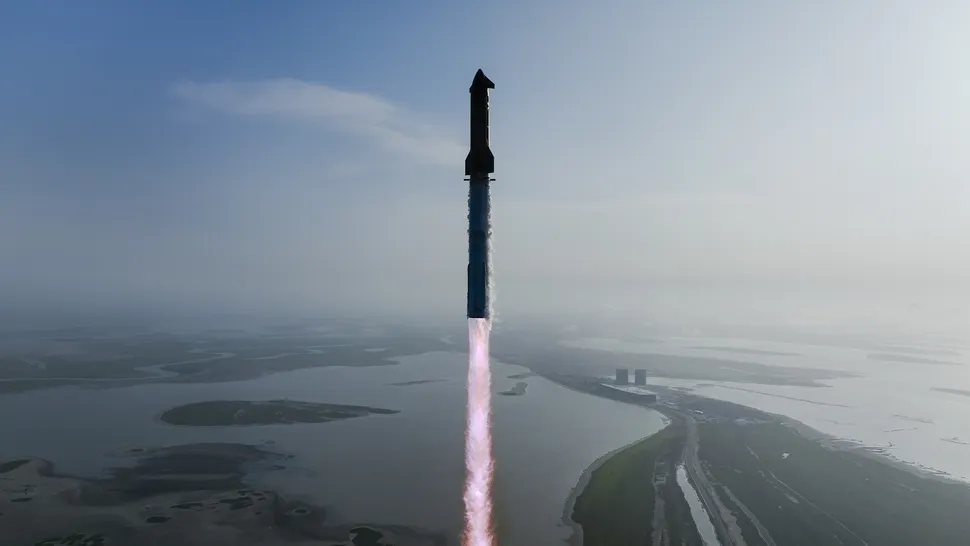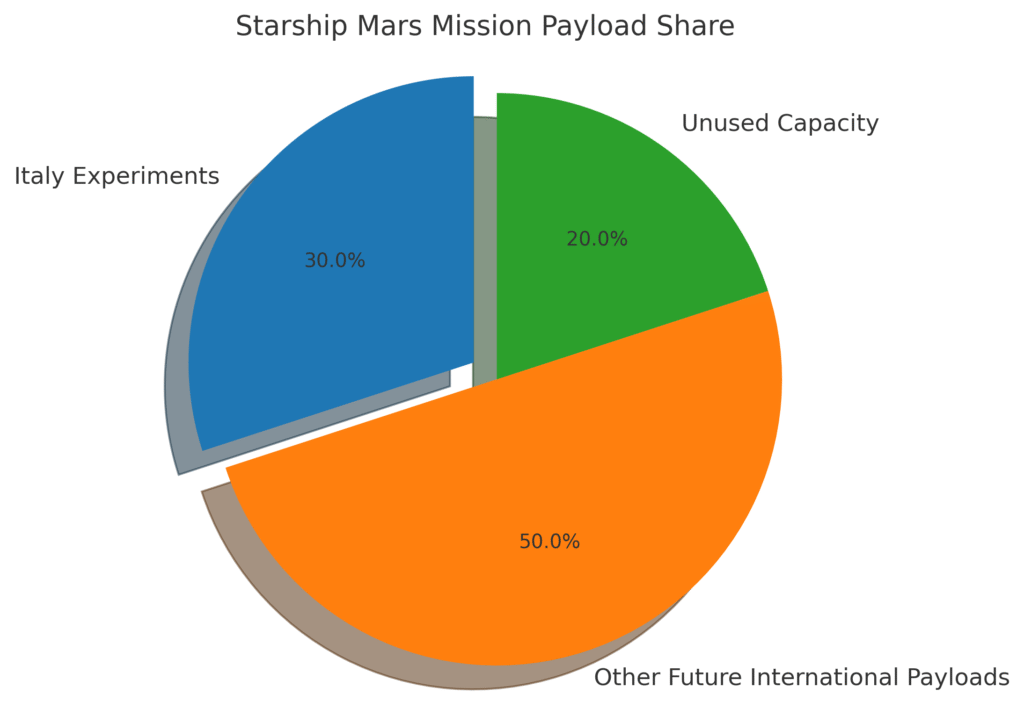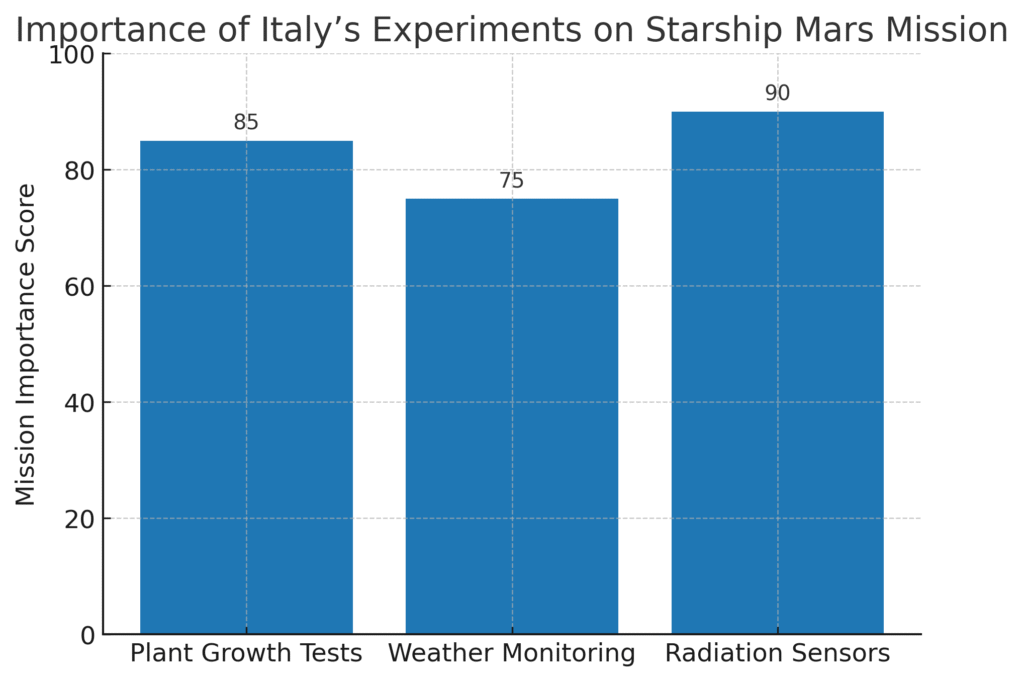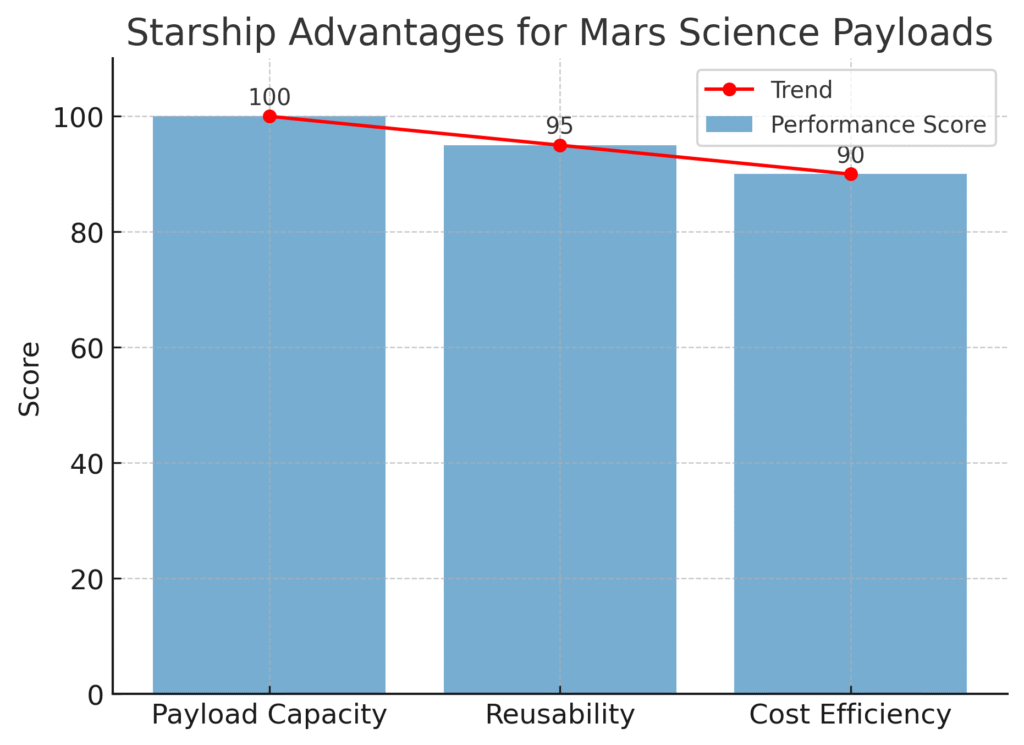
SpaceX Starship will take Italy’s first secret science experiments to Mars. Discover the mission details, payloads, and why this deal is historic.
Starship’s First Commercial Mars Mission – What Makes It Historic
When SpaceX announced that Starship will carry Italy’s science experiments to Mars it marked a turning point in space history. This is not just another rocket launch
. It is the first time a commercial spacecraft will take an international partner’s research all the way to the Red Planet. For decades Mars missions were only run by big government agencies but now a privately built rocket is opening the door for global cooperation. Starship
also read Falcon 9 Set for Takeoff: SpaceX to Launch South Korea’s KF-02 Satellite This Thursday Morning
is not flying for one country here it is flying for the shared dream of exploring Mars together. This single mission is proof that the next era of space travel will belong to both nations and private companies working as one team.
The Italy–SpaceX Deal That Set the Stage
It all began when the Italian Space Agency reached out to SpaceX with a vision to send their experiments beyond Earth and all the way to Mars this was not a quick
handshake deal it took months of planning discussions and mission design to make sure every piece of equipment could survive the long journey and still work
perfectly once it reached the Red Planet the agreement made Italy the first country to book a seat on Starship’s commercial Mars flights and it showed the world that private space travel is ready for big science too
also read Amazon s Kuiper Mission Takes Flight Again with SpaceX What’s New This Time
How Starship Opens a New Chapter for International Science
Starship is more than a rocket it is a shared path for nations to explore space together for the first time a private spacecraft is taking experiments from another country to Mars showing that future missions can unite science from all over the world

Starship to Carry Italy’s Science Experiments to the Red Planet
Starship will take Italy’s research equipment across millions of kilometers to reach the Martian surface the payload includes plant growth tests to see how crops
might survive on Mars a weather station to study the planet’s changing climate and radiation sensors to measure the hidden dangers for future astronauts this mission is more than just technology it is a step toward living and working on another world
Plant Growth Tests for Future Mars Farming
The plant growth experiment will test how seeds and crops react to Mars like conditions during the journey and after landing scientists want to learn if plants can adapt to lower gravity and different sunlight this knowledge will help design future greenhouses that could feed astronauts and maybe one day settlers on the Red Planet
Radiation Sensors to Protect Future Astronauts
Radiation sensors will track the invisible energy particles that fill deep space and the Martian surface these readings will help scientists understand how
also read How Much Has SpaceX Earned from Starlink So Far? Billion-Dollar Breakdown (2025 Update)
much exposure astronauts might face and how to shield them better on future missions this data is key for making long stays on Mars safe for humans

Why Starship Is the Ideal Ride for Mars Science Payloads
Starship can carry far more weight than any rocket before it which means entire science labs can be sent in one trip its reusable design lowers costs so missions
can launch more often and more experiments can fly together the large space inside allows delicate instruments to travel safely to Mars making it the perfect ride for ambitious science payloads from any country
Massive Payload Capacity Compared to Other Rockets
Starship is built to carry over one hundred metric tons to space which is far more than most rockets in history this huge capacity means entire research modules rovers and life support systems can travel together instead of being split across multiple launches it allows Mars missions to be bigger bolder and more complete in a single journey
Reusability and Cost Benefits for Deep Space Missions
Starship is designed to fly again and again after landing which cuts the cost of each mission by a huge margin instead of building a new rocket for every launch the same
vehicle can be refueled and sent back to space this makes deep space missions more affordable and allows more frequent trips to Mars carrying more experiments and supplies each time

When Will Starship Launch Italy’s Experiments to Mars
The mission is planned for the 2026 Mars transfer window when Earth and Mars are in the right position for a shorter and more efficient trip if any delays happen
there is another opportunity in 2028 but the goal is to be ready for the first date so the experiments can start sending data back as soon as possible
this timing is key because launch windows to Mars only open every twenty six months
The 2026 Mars Transfer Window
The 2026 window is when Mars and Earth line up in their orbits making the trip shorter and using less fuel this alignment happens about every two years and gives
missions the best chance to reach Mars quickly and safely for Starship and the Italian experiments this window is the target that the entire mission team is working toward
Backup Launch Opportunities in 2028
If the mission misses the 2026 window the next best chance will come in 2028 when Earth and Mars align again this backup date gives more time to prepare but also means waiting two extra years before the experiments can begin on Mars the team aims for 2026 but having a 2028 option ensures the mission will still happen even if delays come up
